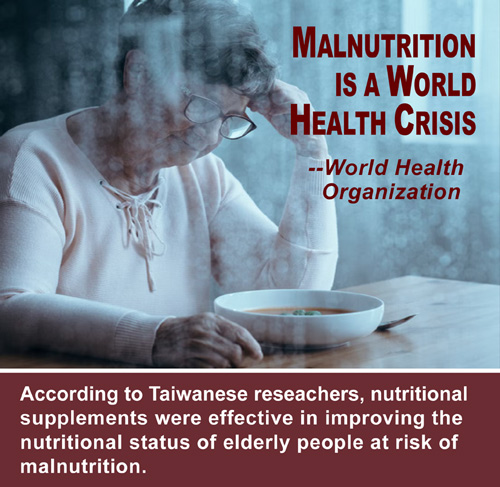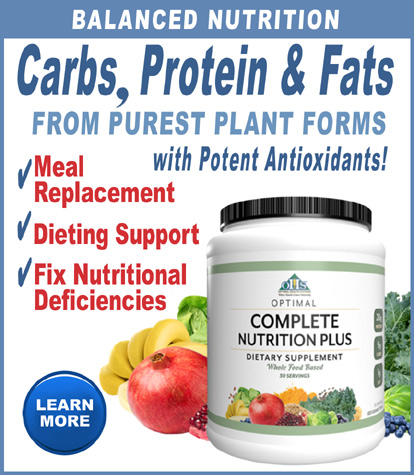A new study from Taiwan is highlighting the life-extending benefit of a comprehensive nutritional supplement for the elderly.
While most studies on elderly nutrition focus on vitamins and minerals (micronutrients), the new Taiwanese study examined the benefits of a “complete nutrition” supplemental drink that also included macronutrients (carbs, protein and fats).
At a time when the World Health Organization is raising awareness of malnutrition in the growing elderly population, the study provides evidence for “Oral Nutritional Supplements” to be used as an effective dietary intervention to reverse the problem.
Surprising stats
Stats on malnutrition among the elderly often surprise people. For one thing, it’s not a rich country/poor country problem. Malnutrition is also common in wealthier Western countries, especially among those over the age of 60.
Secondly, it is generally assumed elderly people who live alone or in general society are more likely to suffer malnutrition than elderly people being provided-for in a care home. But this, also, is incorrect.
According to studies conducted in the U.S., the prevalence of malnutrition ranged from 1% to 15% in older persons who lived in the community, and then increased to a range of 25% to 85% among those living in nursing homes and hospitals.
With this in mind, Taiwanese researchers focused on nursing home patrons for their new study. After 12 weeks of intervention with the supplemental nutrition, the researchers reported that they observed “significantly improved nutritional status and physical performance” in the nursing home residents.
The improvements were assessed by measuring body composition, muscle strength, nutritional status, and blood biomarkers. The measurements were taken at baseline, at the sixth week, and at the end of the 12-week study.
A quality-of-life survey was provided to subjects throughout the study, as well as a health status survey.
Nutritional status was measured using the standardized Mini Nutritional Assessment Short-Form. In addition, walking speed improvements were measured to help assess physical improvement.
During the study period the 107 participants were also provided general nutritional education by a dietitian.
The study, a randomized, parallel clinical trial, was published in Nutrients in October 2023.
Supplement details
The nutritional supplements taken by study participants was provided in a pack with powder to mix into a drink. The pack was provided twice per day—once as a snack between meals, and once before bed.
Each nutritional supplement-drink pack included 7.5 grams of protein, 5.6 grams of fat, and 31.8 grams of carbohydrates. It also included 27 micronutrients encompassing all the vitamins and minerals typically found in a multi-vitamin/mineral product. Lastly, the pack contained 2.5 grams of dietary fiber.
Malnutrition rates on the rise
On World Food Day 2019 the World Health Organization declared “Malnutrition is a world health crisis.” The organization website also noted, “Malnutrition is a complex issue, but it is the main cause of death and disease in the world.”
Today, the World Health Organization estimates the total number of people aged 60 and over will surpass 1.2 billion billion by 2025—and a growing percentage of that number suffers from malnutrition. In turn, the expanding malnutrition rates contribute to the skyrocketing rates of chronic diseases.
The Taiwanese researchers noted that reduced protein and energy nutrients, especially, was linked to “sarcopenia, frailty, and chronic disease occurrence, as well as increased risk of falls and hospitalization.”
Earlier research
The Taiwanese study was certainly not the first to finger the benefits of supplementing for the elderly. The World Health Organziation website states “Current evidence suggests that oral supplemental nutrition plus dietary advice may improve nutritional status in older people affected by undernutrition”—and the website then lists corroborating studies dating back to 2009.
But the researchers offer hope based on their new study: “Oral nutritional supplements are a readily available nutrients that can provide adequate protein and energy sources to these older individuals, with studies highlighting their efficacy in reducing body weight loss and sarcopenia prevalence.”
– – –
Sources: Nutrients (MDPI.com), Journal of Infusion Nursing, World Health Organization.


